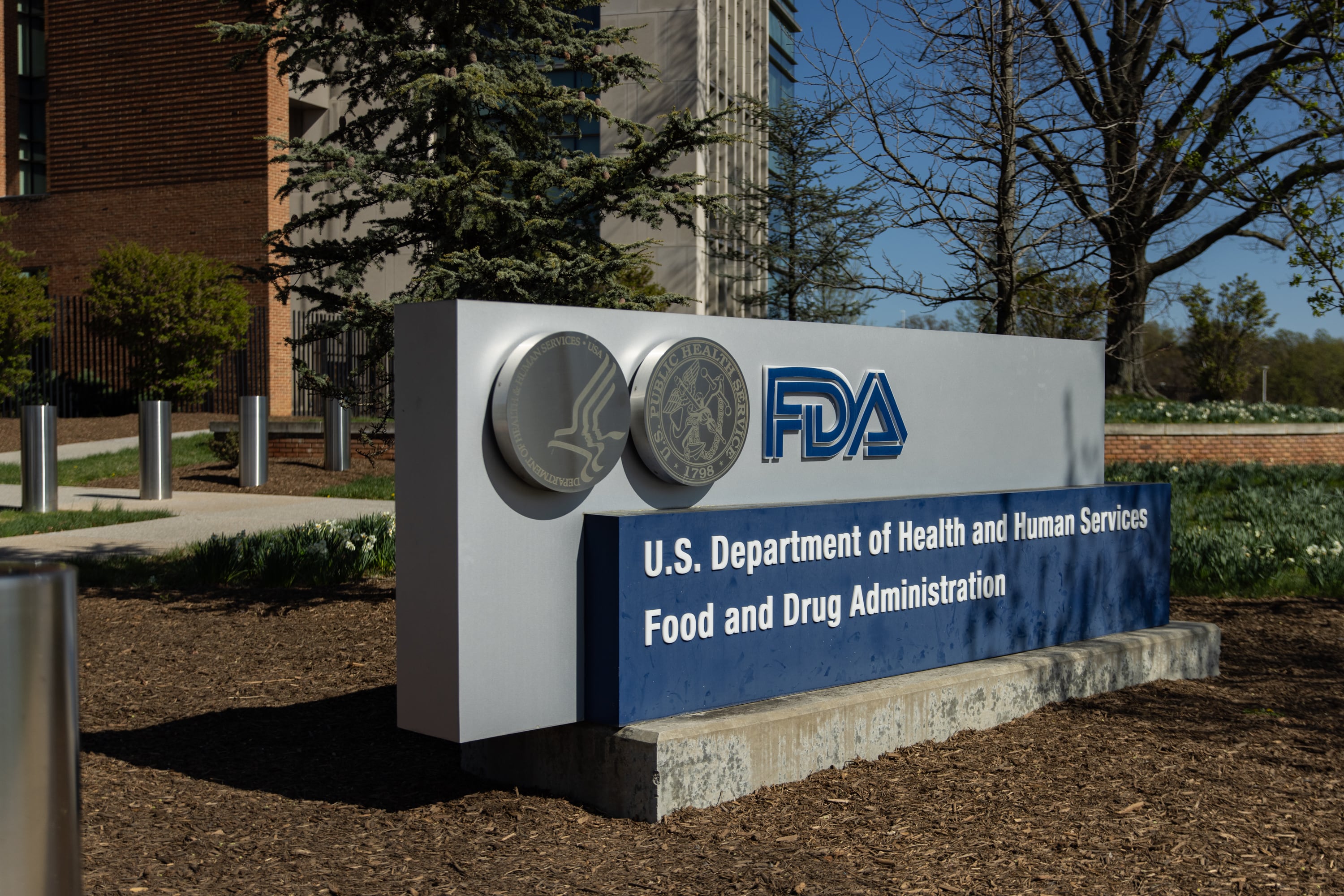Public health, explained: Sign up to receive Healthbeat’s free national newsletter here.
As the nationwide outbreak of infant botulism continues to grow, and new test results show botulism bacteria in some samples of ByHeart infant formula, the source of the potentially deadly contamination remains unknown.
ByHeart Inc., in an announcement on its website Wednesday night, said that testing the company commissioned has identified Clostridium botulinum, the bacteria that cause botulism, in some samples of its baby formula.
“We do not yet know the root cause, but we are committed to finding the answers,” the company said.
At least 31 infants in 15 states who have been fed ByHeart Whole Nutrition infant formula have been hospitalized with suspected or confirmed infant botulism as of Wednesday, according to the U.S. Food and Drug Administration.
That’s eight more infants since Friday’s outbreak update. It can take up to 30 days between when a baby ingests botulism spores until they start showing signs of illness.
Meanwhile, despite the outbreak and nationwide recall of all ByHeart products, FDA officials on Thursday warned that the company’s products are still being sold in multiple states. The FDA said the formula has been reported at “multiple Walmart, Target, and Kroger locations, and at one or more Sprouts Organic Market, Safeway, Jewel-Osco, Shaw’s, and Star Market locations.”
Here’s what to know about the latest developments in the outbreak investigation,
How did ByHeart formula become contaminated with botulism spores?
Federal investigators have said little about how they suspect ByHeart’s infant formula became contaminated, and they have released few details about what their investigation of ingredients and manufacturing processes have found.
“The contaminant is the spores, Clostridium botulinum spores,” said David Clark, a dairy product industry consultant whose practice specializes in infant formulas. “It’s very important to find out where the spores are coming from, because it’s difficult to eliminate them, to kill them, to prevent them from germinating into active bacteria.”
Pasteurization of milk does not occur at a high enough temperature to kill botulinum spores, which is why it’s important to prevent them from getting into milk, he said.
Infant botulism is caused by babies ingesting these inactive spores. But once the spores are in the body, they germinate and colonize the infant’s intestine, where they produce a neurotoxin. The infant may not have any symptoms until weeks after exposure, then begin to show signs of constipation, loss of head control, and difficulty sucking and feeding.
As federal investigators and ByHeart continue to look for how bacteria spores got into the formula, Clark said there are a wide range of ingredients and manufacturing processes that are likely being scrutinized.
Clark, whose firm Bovina Mountain Consulting is based in Englewood, Fla., told Healthbeat it’s important to keep an open mind about where the spores might be coming from, because the bacteria that causes botulism is found widely in the environment.
“As dairy ingredients are key in formula, they must look through those and how those ingredients are handled,” he said.
Dairy cows have the potential to become infected with botulism through contaminated feed and other sources in the environment. Scientists in Germany have reported detecting Clostridium botulinum bacteria and toxin in milk from dairy cattle that appeared to be infected with the bacteria. But other researchers have not found bacteria in the milk produced by a small number of experimentally infected dairy cattle.
“The most likely source of contamination is not actually in the milk coming out of the teat in the [cow’s] udder, it’s more likely to be contamination on the milking equipment,” Clark said.
Botulinum bacteria have the potential to grow in the environment where dairy cattle are kept, including in their bedding, where there is fecal material.
“That’s why there are very thorough requirements, operating procedures about cleansing the udder and the equipment” before milking cows, he said.
But Clark said there are many other potential sources of how the infant formula could have become contaminated. He noted there are other ingredients in formula beyond dairy, including oils, fiber, and minerals.
“It could come from any of the ingredients,” he said. It also could come from contamination of manufacturing or packing equipment or products. “So it’s going to be difficult to track it down,” he said.
Recalled ByHeart infant formula continues to be sold
The FDA this week raised concerns that the recall of all ByHeart infant formula products, which was announced on Nov. 11, has not been effective in protecting consumers.
“FDA has received reports that recalled formula is still being found on store shelves in multiple states,” the agency said. “All ByHeart infant formula products have been recalled, and these products should not be available for sale in stores or online. This includes all formula cans and single-serve ‘anywhere pack’ sticks.”
The FDA said it is working with state agencies and retailers “to ensure an effective recall.”
The agency also warned on Wednesday and Thursday that customers worldwide should not use ByHeart products, which were sold through online marketplaces and shipped to customers. Customer information provided to the FDA by Amazon shows ByHeart formula was distributed to about 20 countries, including Argentina, Canada, Egypt, Israel, Peru, South Africa, and Thailand.
Healthbeat reported last week that in addition to commercial sales, ByHeart had a formula donation program that gave away its product to food banks and organizations helping homeless and in-need families.
It remains unclear what actions are being taken to notify families who received donated formula. The FDA’s outbreak update Wednesday did not mention that ByHeart products have been supplied to food banks and social service agencies. The agency did not respond to questions about this sent by Healthbeat on Wednesday.
“I’m getting very concerned,” Donald Whitehead, executive director of the National Coalition for the Homeless, said Thursday. Whitehead said he’s tried to reach officials at the Centers for Disease Control and Prevention, an agency that has been helpful to his organization in the past.
“I’ve not heard anything back,” he said.
ByHeart’s statements evolve from skepticism to finding bacteria
News of potential issues with ByHeart’s infant formula first became public on Nov. 8. That’s when the company announced it was voluntarily recalling just two batches of its formula.
ByHeart’s announcement emphasized “there is no historical precedent of infant formula causing infant botulism,” that the FDA had not found a “direct link” to the company’s product, and said the recall was being done “out of an abundance of caution.”
At that time, health officials had identified 13 infants hospitalized with infant botulism who had consumed ByHeart formula.
Three days later, on Nov. 11, the company announced it was recalling all of its products after two more hospitalized infants that consumed ByHeart formula were identified the previous day.
The 31 infants whose illnesses are so far linked to the outbreak range in age from 16 days to about 6 months old. And they have fallen ill on different dates over the past three months. The dates that each of their illnesses started range from Aug. 9 to Nov. 13, the FDA said.
But most of these infants have fallen ill in recent weeks, according to the CDC’s timeline of infants’ illnesses. Of the 27 outbreak cases in the CDC’s data, 21 had a first date of illness on or after Oct. 19.
There can be a significant delay between when a child ingests botulism bacteria spores and when they start experiencing any symptoms of illness. Health officials say babies that drank ByHeart formula should be watched closely for 30 days after they last had any of the product.
While the California Department of Public Health announced on Nov. 8 that preliminary tests on an open can of ByHeart formula suggested the presence of Clostridium botulinum bacteria, ByHeart officials emphasized the need to test unopened cans.
“Opened product can be exposed to environmental factors – soil, dust, vegetables – that can contain C. botulinum, which is why it is important to test unopened samples to establish causation,” the company told Healthbeat on Nov. 10.
Now, the company’s own testing has identified the bacteria in “some samples” of its formula. ByHeart said the tests were done by IEH Laboratories & Consulting Group.
“We have been working in cooperation with the FDA, and we are investigating every facet of our process – from ingredient-sourcing to our manufacturing process and facilities, packaging, transportation, everything,” the company’s announcement of the test results said.
ByHeart did not answer questions from Healthbeat on Thursday about how many samples were tested by its lab contractor or how many tested positive for contamination. It’s unclear what regulators have found in their testing of ByHeart’s formula. The FDA said that its investigators have collected and are analyzing unopened ByHeart products.
“Additional testing is underway, and results are expected in the coming weeks,” the FDA said this week. “Detection of Clostridium botulinum in infant formula is difficult, and a negative test result does not rule out the presence of the bacteria in the product.”
Alison Young is Healthbeat’s senior national reporter. You can reach her at ayoung@healthbeat.org or through the messaging app Signal at alisonyoungreports.48






